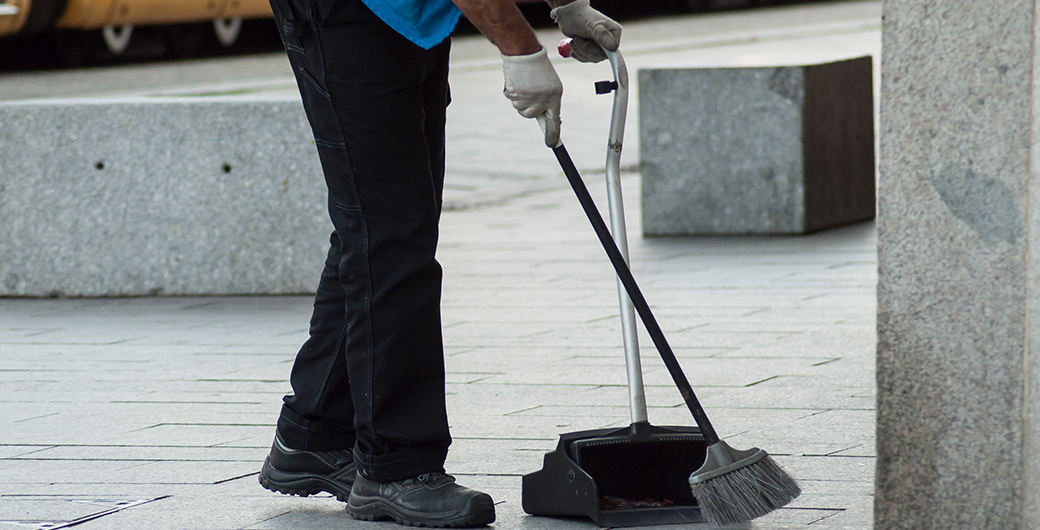Changing outlooks: Creating public value through collaboration and innovation
19 December 2018
● News and media
A chance meeting between two ANZSOG alums has led to a successful and innovative program changing the lives of offenders in NSW.
Rod Chenhall and Graham Bradshaw were seated together by chance at an introductory function for their ANZSOG Executive Master of Public Administration (EMPA) program in early 2015.
The two launched into small talk and swapped information on the challenges they faced in their respective roles: Chenhall was the Community Corrections Director for the Hunter and Central Coast Regions at Corrective Services New South Wales (CSNSW), while Bradshaw headed up Standards and Services at Transport for New South Wales (TfNSW).
CNSW was faced with exponential growth in non-violent offenders subject to community-based orders, and a shortage of worksites for them, while TfNSW needed to maximise the utility of transport assets including train stations, where carparks, walkways, gardens and concourses were in need of ongoing maintenance.
The solution was obvious – get offenders on corrective orders to work off their debt to society by helping maintain train stations, but turning this into a workable and successful program took time, effort, strategic thinking and one unique collaboration.
From conception to reality
The first issue was marrying two different organisational cultures with little history of working together.
The mood at TfNSW was buoyant as it rolled out the largest public infrastructure program in the southern hemisphere, its cranes crowding the Sydney skyline. Mr Bradshaw described his Secretary Tim Reardon as posessing a ‘have-a-go’ ethos and a willingness to support promising ideas.
Life at Corrective Services NSW (part of the Department of Justice) was something of a contrast. Resources were stretched, and a much more cautious, by-the-book attitude reigned. This was largely a matter of necessity. Politicians and the public generally paid little attention to corrections – except when things went wrong.
Due to these different cultures the pair decided to move carefully when they set up Changing Outlooks – a name chosen to reflect the work being done and the (hoped-for) impact on people’s lives.
“We decided to do a trial first and prove the model before going for the big mandate as we wanted to control the narrative in the early stages,” Mr Chenhall said.
Between them, they had sufficient authority and support to get a trial underway, so they established an initial 12-month local Service Level Agreement at Gosford, Wyong and Morisset railway stations, on the Central Coast of NSW, zeroing in on known hot-spots for antisocial behaviour.
“It wasn’t about making every station perfect,” explained Chenhall, “it was about doing the 2-3% every weekend”. But small improvements such as clearing rubbish and cleaning graffiti were enough to have a big cumulative effect, especially on public perceptions.
The pair spent a lot of their preparation bringing local transport and corrections staff together to build relationships, allay the concerns of local rail workers about offenders working at stations, and ensure they did not end up taking work from employees and contractors.
At the Changing Outlooks launch, the pair braced themselves for reports of groups not turning up, or on-site incidents. But the bad news never came, in fact the impact was quite the opposite and before long, Changing Outlooks was making a tangible difference in participants’ lives.
“Once we started to establish gardens down at Gosford offenders then started to have a stake in that precinct and actually felt like they did something of value,” Mr Bradshaw said.
“Which for some of these people, I don’t think they’ve ever felt before. We heard stories where offenders were taking their family back to show them the garden and improved amenity – it’s a real investment in the community.”
Making Changing Outlooks bigger
From the outset, the pair aimed to take Changing Outlooks state-wide. However, they knew that heart-warming stories would need quantitative reinforcement. They chose a series of simple metrics, tailored to the interests and values of each agency. At the same time, program activities were related back to broader department and government objectives, such as the Premier’s priority to reduce litter 40% by 2020.
“My secretary was interested in lost-time injuries, financial efficiencies and customer feedback. But for Corrective Services, it was how many people were engaged, program retention rates and site incidents,” Mr Bradshaw said.
By early 2016, Changing Outlooks was in operation at six sites and the TfNSW 2016 Cluster awards ceremony formally recognised the program’s achievements.
The program’s founders were already looking to the future. Plans were underway to extend the program to other modes of transport and combine community-based orders with skills training, including discussions with state training organisations. TfNSW had approached other departments such as Families and Community Services and Aboriginal Affairs NSW to explore the possibilities for other collaborations.
“Sometimes the planets align,” Mr Bradshaw said.
“I’d found one of the people at Corrective Services willing to have a go and try something new and Rod was absolutely key to that. Personally, we took quite a few risks, because in both organisations we hadn’t been given permission to do this. No one had said, ‘no’ but not getting a ‘no’ doesn’t necessarily mean it’s a ‘yes’”.
Looking back on what had been achieved in a relatively short time, both men attributed their success to having courage to “back yourself”, focusing on the benefits to each party before the delivery details, and reaching out to make connections. They also stressed the importance of trust, communication and showing appreciation.
But the most crucial aspect was a willingness to apply some imagination to the concept of public service.
“This is what we did as two agencies. Get together as agencies that wouldn’t normally work together and find a solution to a societal challenge or policy or service delivery problem that you’ve got,” Mr Bradshaw said.
